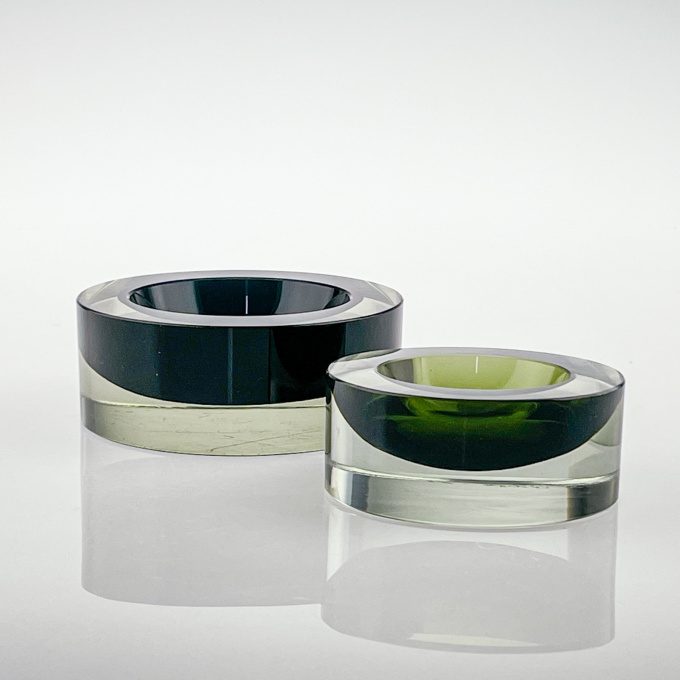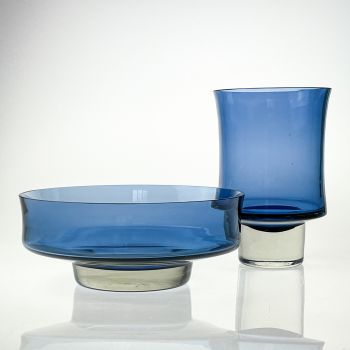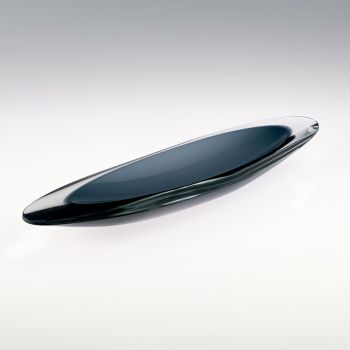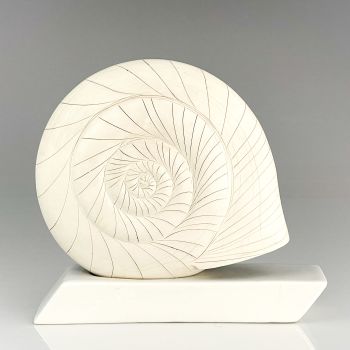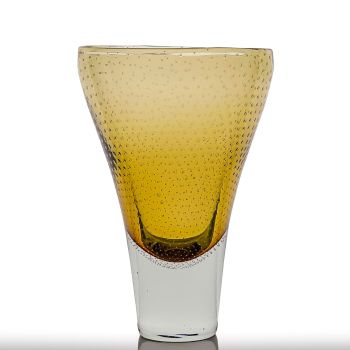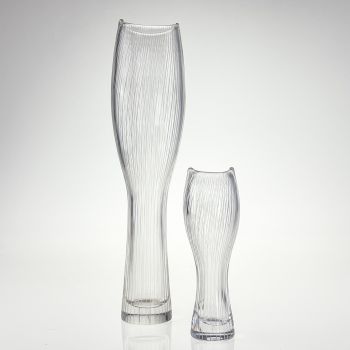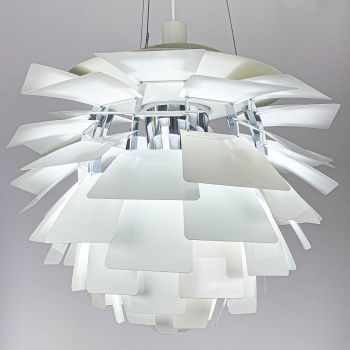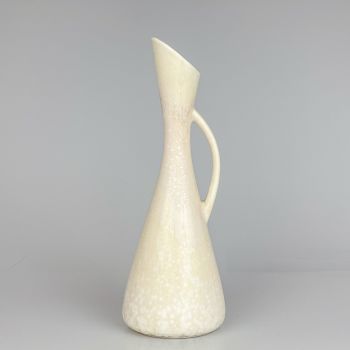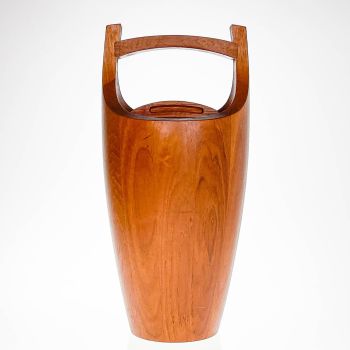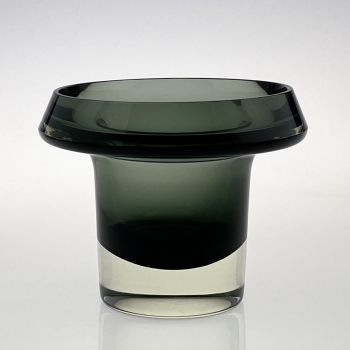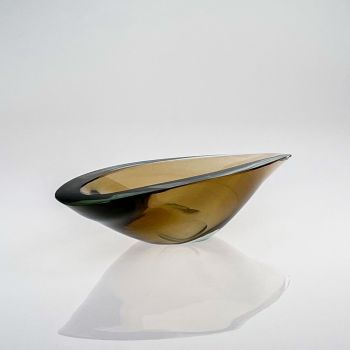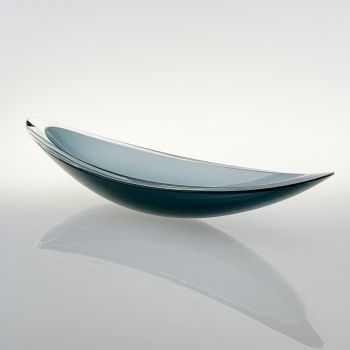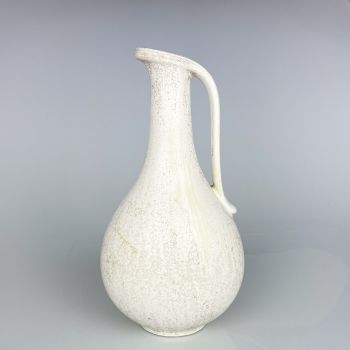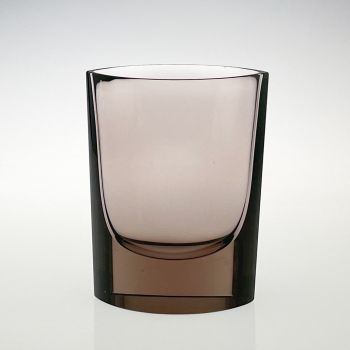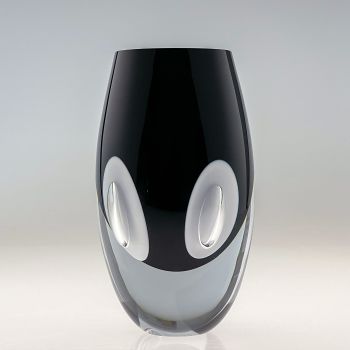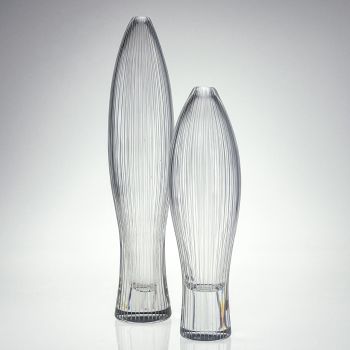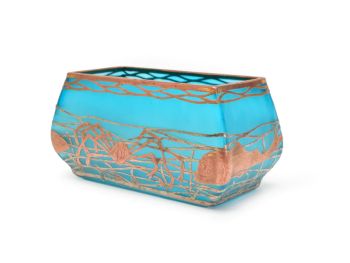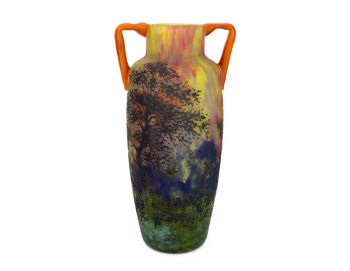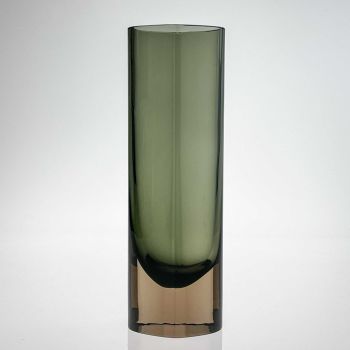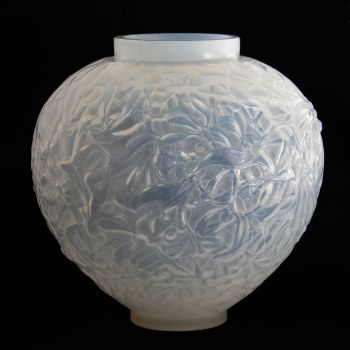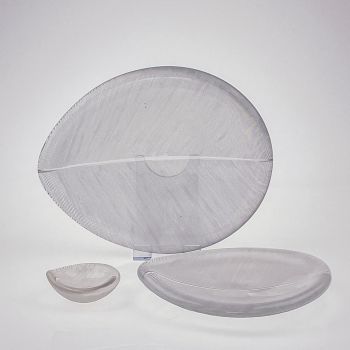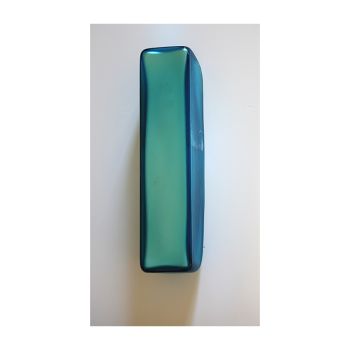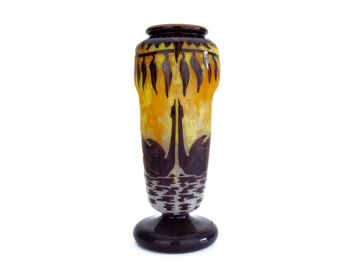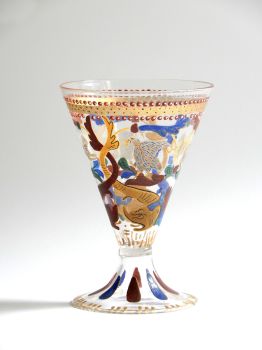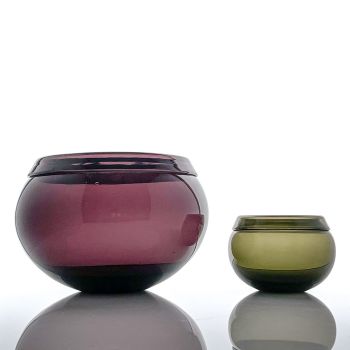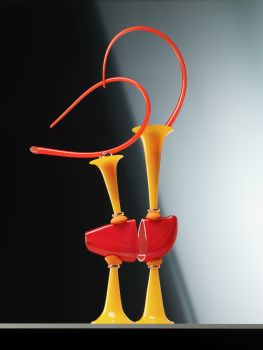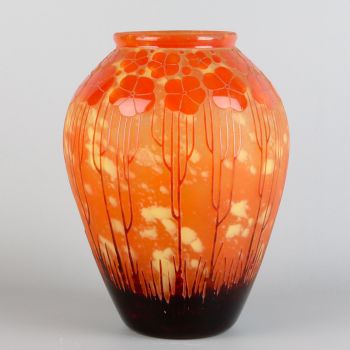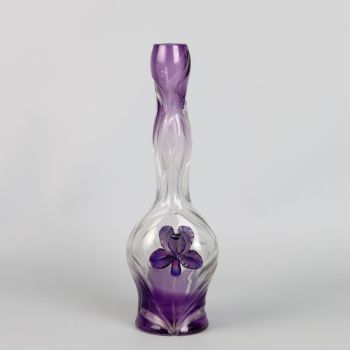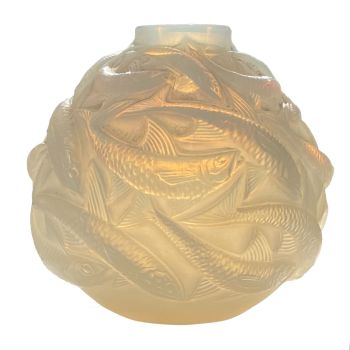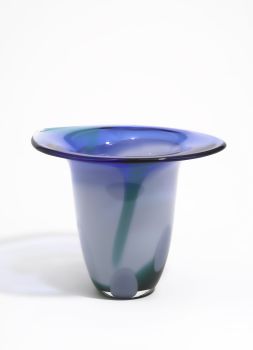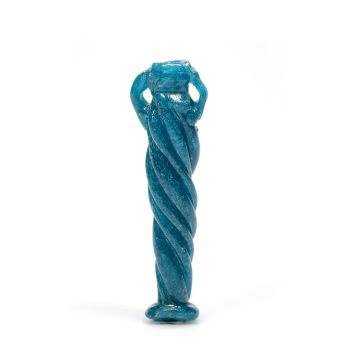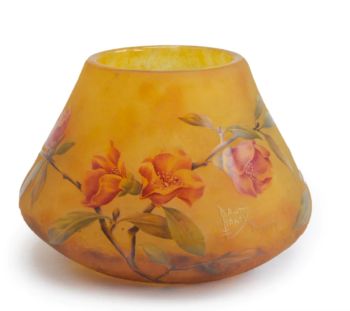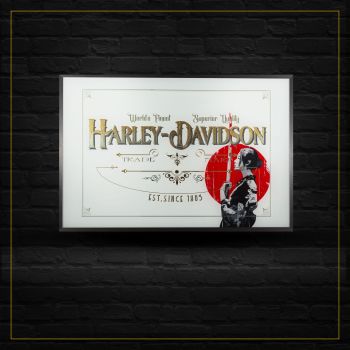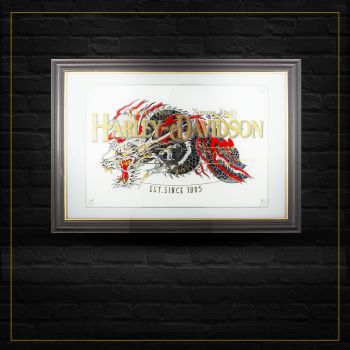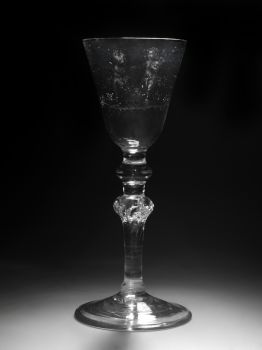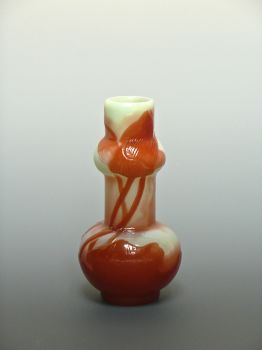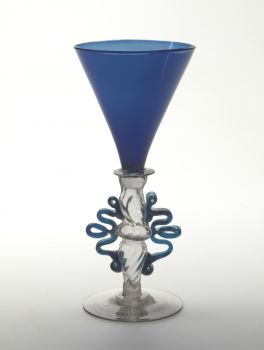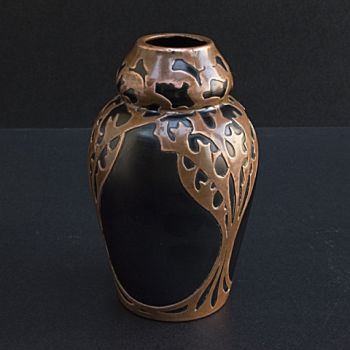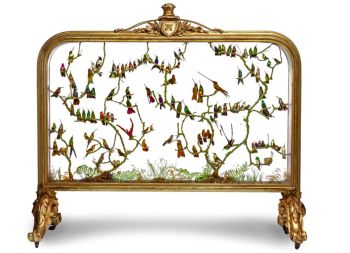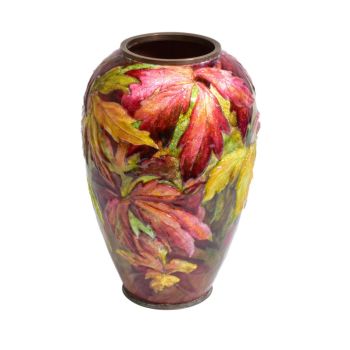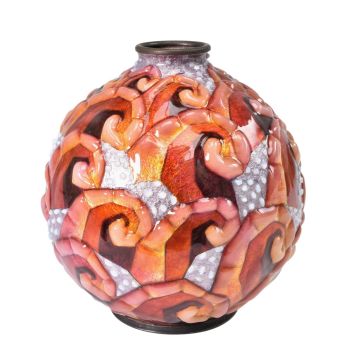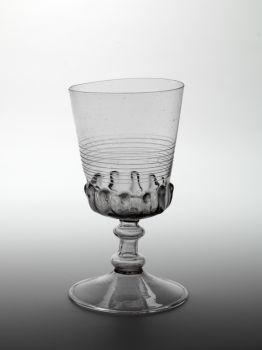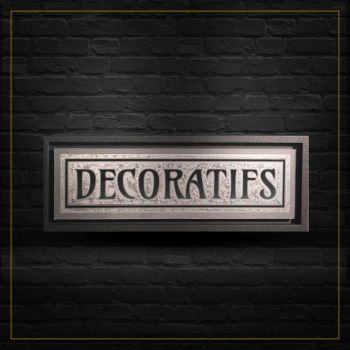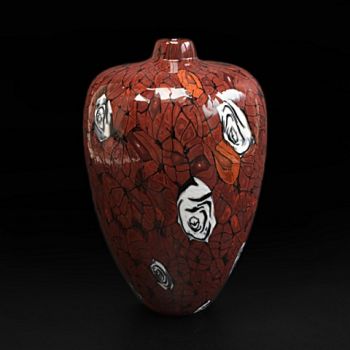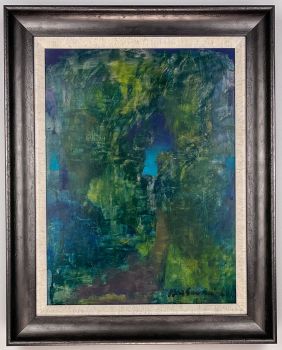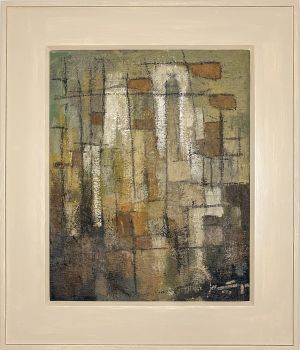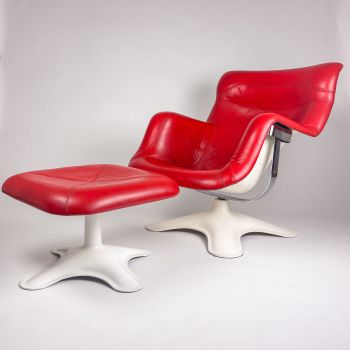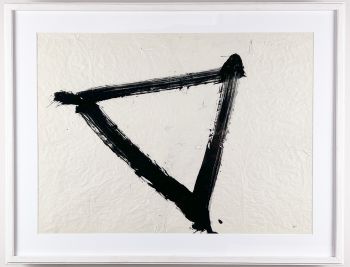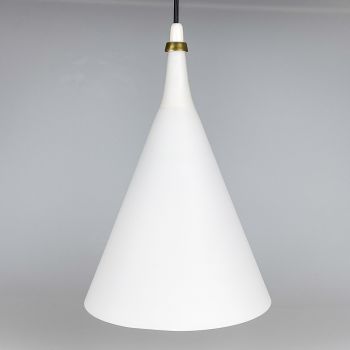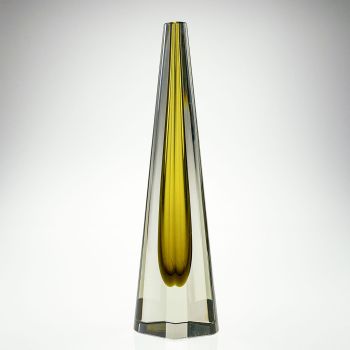A set of two sizes Art-object, model SH 117, Nuutajärvi-Notsjö Finland 1958 & 1959 1958 - 1959
Saara Hopea
Glass
5 cm, ø 13 cm
ConditionVery good
€ 1.100
Van Kerkhoff Art
- About the artworkTwo mold-blown, clear, dark-blue and moss-green cased glass Art-objects / bowls, model SH 117. Designed by Saara Hopea in 1956 and executed by Nuutajärvi-Notsjö in 1958 & 1959.
An optical effect makes it appear as if the colour goes to the outer edges but the encasing is only in the interior.
These objects were made between 1956 and 1967 in two sizes 9,5 cm and 13,5 cm in diameter, and in several colours (blue, green, yellow, purple and red) this being a complete set in green and blue. Both are early production examples.
They are marked and dated in diamond pen underneath the base.
Two mold-blown, clear, dark-blue and moss-green cased glass Art-objects / bowls, model SH 117. Designed by Saara Hopea in 1956 and executed by Nuutajärvi-Notsjö in 1958 & 1959.
An optical effect makes it appear as if the colour goes to the outer edges but the encasing is only in the interior.
These objects were made between 1956 and 1967 in two sizes 9,5 cm and 13,5 cm in diameter, and in several colours (blue, green, yellow, purple and red) this being a complete set in green and blue. Both are early production examples.
They are marked and dated in diamond pen underneath the base.
About Saara Hopea
Saara Elisabet Hopea (Porvoo 1925 – Porvoo 1984) was a Finnish designer of Art-glass, furniture and jewellery.
Saara Hopea was born in 1925 in Porvoo, in the south of Finland. Her parents Ossian Hopea and Lempi Westerlund owned a goldsmithing company.
After attending secondary school, Hopea studied at the Interior Design Department of the Central School of Art and Design, now the Aalto University of Art and Design.
She graduated in 1946, and worked for a few years as an illustrator, then she accepted a job at the lighting factory of Taito Oy, headed by the renowned designer Paavo Tynell.
In the early 1950’s, Saara Hopea became interested in glass design and started working at the Nuutajärvi glass factory, where she worked under artistic director Kaj Franck.
After her father’s death, Saara Hopea took over the direction of the family business Ossian Hopea Oy in 1959. She worked as the artistic director from 1959 to 1960 and again from 1967 and was responsible for numerous jewellery designs.
In 1960 Saara Hopea married Oppi Untracht , an American goldsmith, photographer and writer, and they moved to New York City. Together with her husband, Saara Hopea also lived in Nepal and in India over the years until 1967, after which the couple settled permanently in Porvoo.
For her glass designs, Saara Hopea received a silver medal at the Milan Triennials in both 1954 and 1957. She also received the Porvoo City Culture Prize in 1981 and the State Arts and Crafts Prize in 1982.
Her retrospective exhibition was held at the Museum of Arts and Crafts in Helsinki in 1987. 28 of her works are in the collection of The British Museum in London and the MoMa in New York holds 11 of her works.
About Saara Hopea
Saara Elisabet Hopea (Porvoo 1925 – Porvoo 1984) was a Finnish designer of Art-glass, furniture and jewellery.
Saara Hopea was born in 1925 in Porvoo, in the south of Finland. Her parents Ossian Hopea and Lempi Westerlund owned a goldsmithing company.
After attending secondary school, Hopea studied at the Interior Design Department of the Central School of Art and Design, now the Aalto University of Art and Design.
She graduated in 1946, and worked for a few years as an illustrator, then she accepted a job at the lighting factory of Taito Oy, headed by the renowned designer Paavo Tynell.
In the early 1950’s, Saara Hopea became interested in glass design and started working at the Nuutajärvi glass factory, where she worked under artistic director Kaj Franck.
After her father’s death, Saara Hopea took over the direction of the family business Ossian Hopea Oy in 1959. She worked as the artistic director from 1959 to 1960 and again from 1967 and was responsible for numerous jewellery designs.
In 1960 Saara Hopea married Oppi Untracht , an American goldsmith, photographer and writer, and they moved to New York City. Together with her husband, Saara Hopea also lived in Nepal and in India over the years until 1967, after which the couple settled permanently in Porvoo.
For her glass designs, Saara Hopea received a silver medal at the Milan Triennials in both 1954 and 1957. She also received the Porvoo City Culture Prize in 1981 and the State Arts and Crafts Prize in 1982.
Her retrospective exhibition was held at the Museum of Arts and Crafts in Helsinki in 1987. 28 of her works are in the collection of The British Museum in London and the MoMa in New York holds 11 of her works.
Marked
Marked in diamondpen underneath the base: S. Hopea Nuutajärvi-Notsjö '59 (1959) & '58 (1958)
Execution
Nuutajärvi-Notsjö glassworks, Finland 1958 & 1959
Condition
These Art-objects are in good vintage condition. Some scratches on the side and several deeper scratches underneath the base. Basic wear consistent with age and use. No chips or cracks.
Literature
Oppi Untracht – Saara Hopea-Untracht: her life and work.
Dimensions
Height 5,16 & 4,42 cm
Diameter 13,56 & 10,6 cm
Weight 1443 & 775 grams - About the artist
Saara Hopea had a prolific career in various design fields, leaving a significant mark on the Finnish artistic landscape of the 1950s. Her journey began in the realm of furniture design, where she honed her skills from 1946 to 1948. Seeking new opportunities, she then joined forces with renowned metalsmith Paavo Tynell's company, where she worked until 1952.
During this time, she contributed to the Nuutajärvi glassworks, where her creations became a shining embodiment of the minimalist aesthetic that defined Finnish style in the 1950s, influenced by the principles of the Bauhaus design philosophy. Notably, after her father's passing in 1948, she took on the task of designing silverware for his shop in Porvoo.
A turning point in Hopea's life occurred when she married and relocated to New York with her husband. It was here that she embarked on a new artistic path, exploring the realm of enamel work. Through her experimentation with overfiring transparent enamels on copper, she achieved remarkable results that bestowed her pieces with a spontaneous and painterly appearance, characterized by vibrant colors and remarkable depth. Her exquisite enamel creations found their way into the hands of discerning patrons through exclusive shops.
The couple's thirst for knowledge and artistic inspiration led them to embark on a remarkable journey through Nepal and India, spanning four years. During this time, they immersed themselves in the study, photography, and collection of local metalwork and jewelry. In 1997, her husband, deeply influenced by their experiences, published "Traditional Jewelry of India," a testament to their exploration and appreciation of the region's rich artistic heritage. In 1967, they returned to Porvoo, where Hopea's artistic endeavors encompassed a wide range of disciplines, including silversmithing, textile design, and enameling.
The impact of Saara Hopea's talent and artistry extends beyond Finland's borders. The British Museum boasts a collection of 28 of her works, while the Museum of Modern Art holds 11 precious items, testament to her enduring legacy. In 1988, her husband published a comprehensive account of her life and work titled "Saara Hopea-Untracht: Life and Work," shining a light on the remarkable artistic journey of this tranquil Scandinavian visionary.
Are you interested in buying this artwork?
Artwork details
Related artworks
- 1 - 3 / 3
Børge Mogensen
Teak wood “dropleaf” desk – Søborg Møbler, Denmark circa 19551950 - 1960
Price on requestVan Kerkhoff Art
1 - 4 / 24Frères Daum
Daum Nancy – “Paysage Soleil Couchant” vase with two applied handles1900 - 1910
Price on requestAntiques Emporium
1 - 4 / 24Unknown artist
François-Théodore Legras – Tall “Fleurs de Pommier” apple blossoms vase1900 - 1909
Price on requestAntiques Emporium
Unknown artist
Cristallo façon de Venise Drinking Glass1600 - 1650
Price on requestPeter Korf de Gidts - Antiquairs
1 - 4 / 24- 1 - 4 / 12

